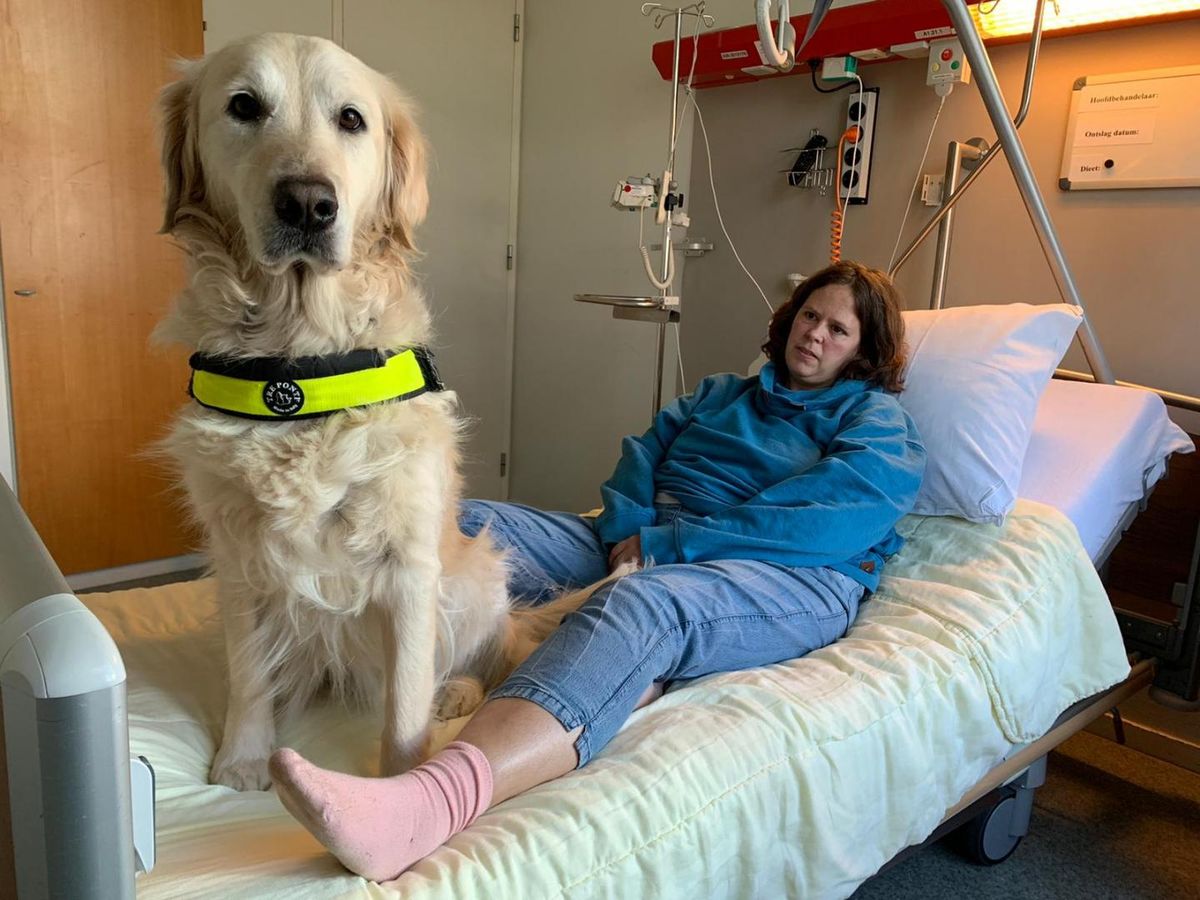Dogs' Paws Cleaner Than Your Shoes

March 8, 2021
Service dogs are widely used by people with impaired hearing, vision and balance — among other things — to help them get through their daily errands. But often, hospitals and other private and public establishments ban all animals, supposedly because of hygiene concerns.
Researchers at Utrecht University decided to look into whether such no-dogs-allowed policies are justified. Their findings?
“The dogs’ paws turned out to be cleaner than the soles of their shoes,” says Jasmijn Vos, one of the Utrecht researchers. “This makes the hygiene argument that is often used to ban assistance dogs from public locations invalid.”
To conduct their study, Vos and others in the veterinary medicine program took samples from the paws of 25 assistance dogs and the shoe soles of their users. For comparison, they also investigated an equally large group of pet dogs and their owners. They examined the samples for poop bacteria (Enterobacteriaceae), which are very common outdoors, and for an important diarrheal bacteria (Clostridium difficile).
The diarrheal bacteria did not occur on the dogs’ paws at all, and only once on a shoe sole, the researchers said.
Assistance dog users in The Netherlands were also surveyed about their experiences, and 81% said they are still regularly refused entry to public places with their dog, even though this is prohibited by Dutch law.
U.S. service dog laws
U.S. laws regarding service dogs are similar to those in Holland. The Americans With Disabilities Act (ADA) requires businesses and institutions that have a no-pets policy to make “reasonable accommodations” for people using a service animal.
“Accordingly, entities that have a ‘no pets’ policy generally must modify the policy to allow service animals into their facilities,” the U.S. Justice Department advises on an FAQ page on its website.
Among other things, the Justice Department advises that, under the ADA:
- Self-service food service areas cannot ban service animals;
- Hotels cannot segregate service animals in special rooms;
- Hotels cannot charge an extra cleaning fee for guests with service animals;
- Service dogs cannot be banned from ambulances. If there is not enough room for them, they must be provided other transportation; and
- Hospitals must allow patients to bring their service animals with them. “Service animals must be allowed in patient rooms and anywhere else in the hospital the public and patients are allowed to go.”
See the Justice Department FAQ for more information.
